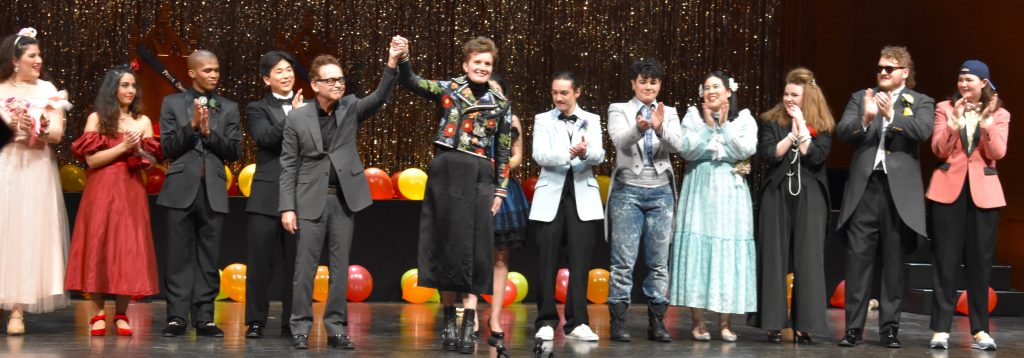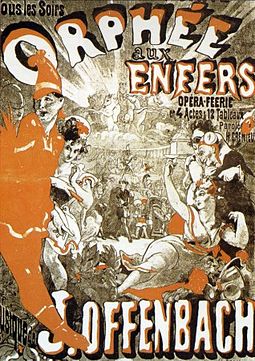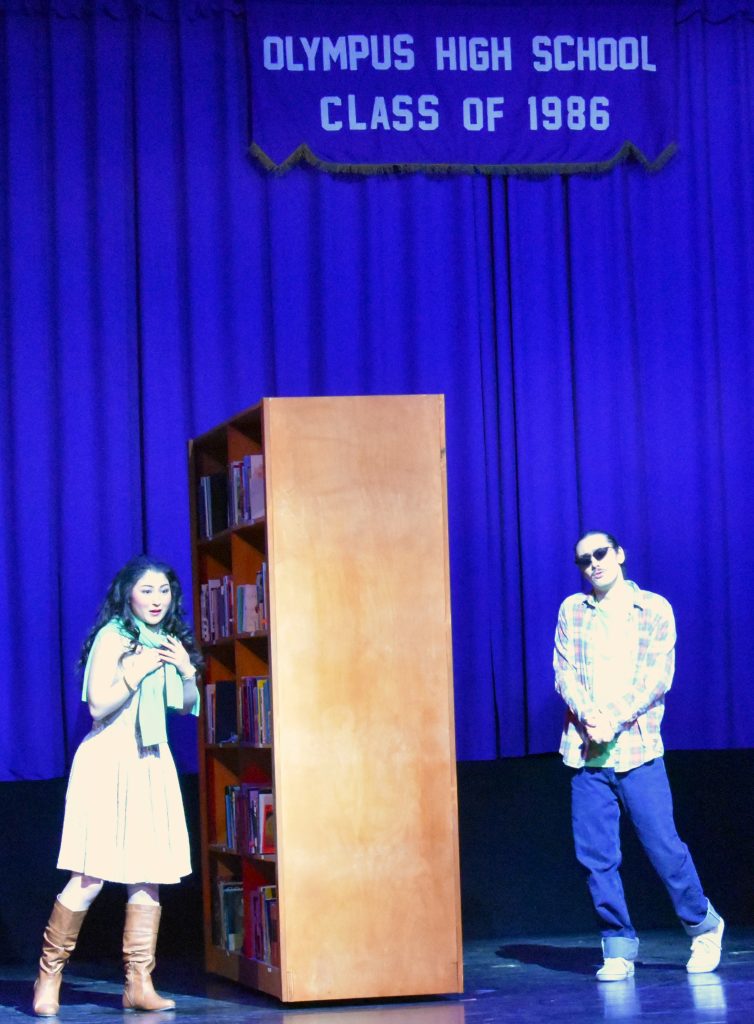
by Kevin T McEneaney
Jacques Offenbach’s musical score with libretto by Hector Crémieux and Ludovic Halévy, Orpheus in the Underworld (1858, revised 1874) was the smash-hit of Offenbach’s musical career. He was a renowned virtuoso cellist, writing over one hundred cabaret programs with jaunty melodies, often for the Moulin Rouge. This was the first modern, comic opera freed from the chains of literal, fundamentalist interpretation of Greek mythology, which had been revered for far too long. Here French wit triumphs over blind myth. Greek philosophers, intellectuals, and scientists never accepted Greek myth, although some religious intellectuals might perceive moral allegories in myth.
With such a viewpoint, one might say that one shouldn’t look back with nostalgia at an early love relationship—that is not a healthy psychology because decisions in life are about the present and the future. German-born Offenbach’s amusing opera score presents modern (in origin a French word) perspective with effervescent charm in plot and music, accompanied by excellent satire that ridicules political sham with memorable, delightful music.

The original version satirized Napoleon, his cabinet, and corrupt judiciary, which Napoleon found so amusing that he granted Offenbach (who had only recently acquired French citizenship) the Légion of Honneur. Napoleon was amused by the bribery satire of the opposition judiciary and the fierce antagonism of the Parisian newspaper Le Figaro.
The invention of a character called Public Opinion presents a sociological stroke of genius that rings a contemporary note as it offers an ironic, self-conscious, social critique.

This Americanized 1986 production is innovative in transplanting the libretto and music to the sociology of high-school with a focus on who will be the King and Queen of the graduating Prom, yet the scaling down of a nation to a high school remains a major reduction in psychological heft. The comic opera has been reduced to two acts instead of four by the script of Katherine M. Carter with further adaptations by the current cast.
We are at Olympus High School with dialogue in English and songs sung in French with helpful electronic superscript. As a showcase for students in the Graduate Vocal Arts Program, this presents a smash-hit of the talented members of Artistic Director Stephanie Blythe’s students in that the successful program.

The Orchestra Now in the sunken pit was ably directed by James Bagwell. Jubilant choreography was supplied by Stephanie Sutherland. Soprano Emily Finke as Eurydice was outstanding with tone, voice projection, and acting ability. Tenor Jacob Hunter as trickster Pluto was also impressive with voice, acting, and gymnastics that delivered extra climax. Tenor Jun Mo Yang as Orpheus exuded liquid confidence and engaging affability with mesmerizing melodic voice. Mezzo-soprano Abbegael Greene offered trenchant critique that was threateningly partisan with calm, convincing assurance. Baritone Joseph Breslau as Jupiter was convincing as the hood-winked ruler. Soprano Nicole Rizzo as Juno delivered her silvery voice with Olympian thrust that was simply ignored by all players.
This impish production implies the abysmal failure of the American High School system which remains focused on sociological status, inconsistent and superficial sexual flirtation, libraries that exist for books to be irrelevant props and a place for delivering secret communications, school newspapers that focus on social popularity and threaten blackmail, and the failure of the student body to appreciate a single bar of accomplished classical music.

In brief, this production offers a triumphant satire on American culture which runs vaguely parallel to the original satiric panorama which has enthralled audiences for nearly two centuries. Offenbach’s bouncy satiric music still enraptures the ear. This production is sophisticated fun, a romp that uplifts your spirits!